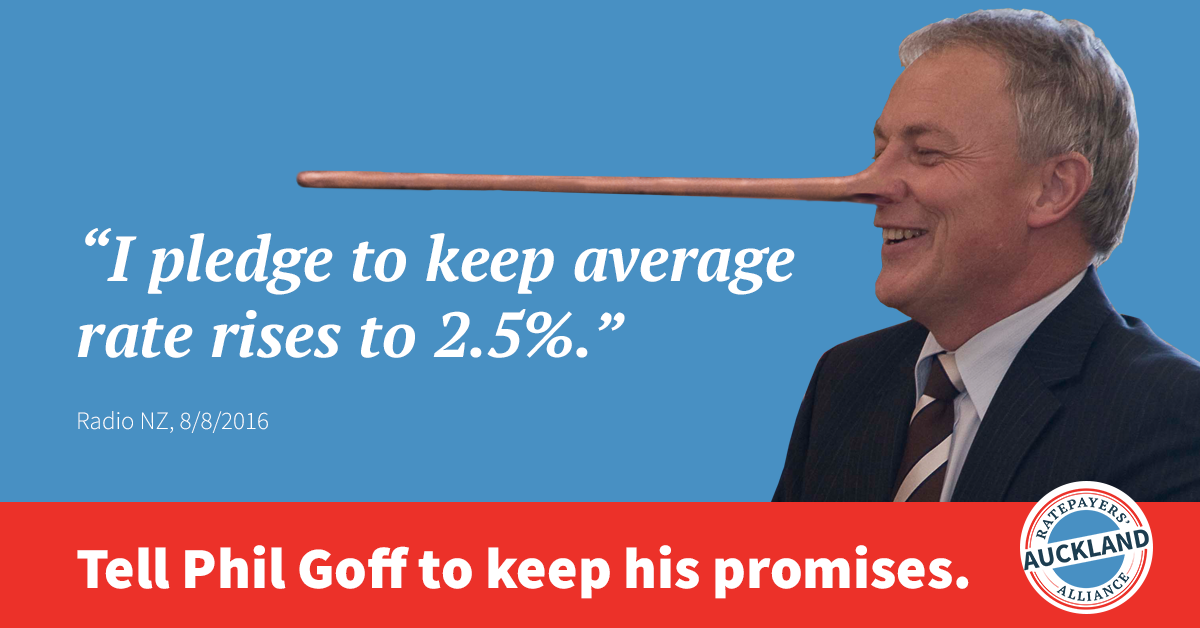The Taxpayer's Union has alerted its' membership to an alarming legislative change being proposed by the government. The Local Government (Community Well-being) Amendment Bill looks to change the 'Purpose' of local government. This outrageous move will effectively give councils carte blanche to spend your money on all sorts of pet projects, expansion of reach, social engineering and promotion of political hobby horses, rather than focusing on building and maintaining local infrastructure, providing good quality core services, and doing so efficiently and cost effectively.
Louis Hoolbrooke, Communications Officer at the Taxpayers Union, sent out an e-mail to its' members this week encouraging them to resist the passage of this Bill through parliament. The newsletter calls on members to write to MPs and generally expose this move for what it is - a council power grab which will give them an open-ended invitation to have more and more control over people's day-to-day lives whilst effectively cancelling one of the main planks of council legal accountability.
The full e-mail is shown below:
Dear Supporter,
Government proposed law change lets councils off financial leash
The Government has introduced a new bill to remove the last remaining fiscal restraint on local councils.
The Local Government (Community Well-being) Amendment Bill changes the ‘purpose’ of local government, removing reference to the core functions of councils and, incredibly, removes the requirement that councils deliver services "in a way that is most cost effective for households and businesses".
In short, the clear requirement for councils to be ‘cost effective’ is being replaced with a wishy-washy provision that councils promote the ‘well-being of communities’.
This change is very significant. In reviewing councils' decisions, courts look to the purpose provisions. We are aware of many examples of local government spending proposals that did not happen because councillors were given legal advice that a judicial review may invalidate the decision because it is not 'cost effective'. Removing the provision lets councils off the leash.
Local Government New Zealand – the ratepayer-funded lobby for councils – is "delighted" about the change. Little wonder: it will allow councils to, for example, hike salaries without increasing output, or spend ratepayer money on 'cultural investment' without budget constraints or cost-benefit analysis.
So far, the media has been AWOL on this issue, and the Bill passed its first reading this week without a hitch.
We won’t let the Government push through these changes without a fight.
In the coming months we will be making sure MPs get plenty of submissions from ratepayers about why local government needs more, not less, pressure to be efficient.
Ratepayers are sick and tired of being cash cows for local body politicians and bureaucrats promoting hobby horses rather than infrastructure investment and core services.
Councils are already bad at wasting time on non-core business – take Wellington Regional Council's submission of a motion to the Local Government NZ conference asking all New Zealand banks to get out of fossil fuel investments – the last thing councils need is more license to throw money at these sorts of causes.
Once Select Committee submissions are open, we'll launch an online tool for you to either endorse our submission, or submit your own to MPs. We'll keep you updated.
…and here’s why councils need leashes
Over the last few weeks, our student interns have been filing official information requests for entertainment and catering expenses at local councils across New Zealand.
Wellington City Council was so embarrassed about releasing their entertainment figures to us, they front footed the story by going straight to the Dominion Post (with their own spin on the embarrassing spending). The paper ran the story on its front page.
The big-ticket item: $98,000 spent on a lavish banquet for a delegation of Chinese businesspeople and politicians. $22,000 was spent on “theming and menu design” alone.
Wellington Chamber of Commerce boss John Milford was wheeled out by the Council to defend the spending (the Council is now a major funder of the Chamber and were given plenty of invites to the event).
Mr Milford claims the banquet was a good investment in strengthening business relationships – but if that’s true, why couldn’t local businesses foot the bill?
Our Executive Director debated the topic with Mr Milford on Newstalk ZB's drive show. You can listen to the debate here.
A win for transparency
All up, the Council spent $336,126 on entertainment, catering, and gifts in the last year.
But aside from publicising one year’s spending, we earned a small but significant victory going forward – the Council, in their public statement regarding our enquiries, has committed to proactively releasing sensitive expenditure every six months.
This is the right thing to do. And we will be pushing other councils to make the same commitment.
Waikato DHB: failed app costs $7,000 per user
Finally this week, in what's turning into a common theme of this newsletter, the Waikato DHB is again making headlines for all the wrong reasons. It wasted $18.8 million of taxpayer money on a ‘SmartHealth’ app, which has now been scrapped.
The app simply wasn't wanted – low usage rates meant a cost of around $7,000 per user.
We often see government departments waste money on unpopular apps, but never before on this scale. Apps might sound hip and modern, but when it comes to service delivery, we say the urge to innovate shouldn’t trump basic value for money.
You can read my comments to media on the story here.
Have a great weekend,
Louis Houlbrooke
Communications Officer
New Zealand Taxpayers’ Union Inc.
www.taxpayers.org.nzPS. Some of our best stories come from our very own members and supporters with insider information, suggestions, or tip-offs. If you see an example of government waste which deserves to see the light of transparency, our confidential tip-line is available at www.taxpayers.org.nz/tip_line.
